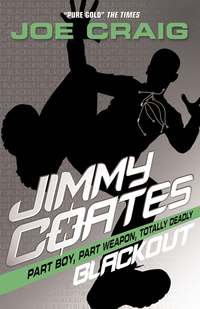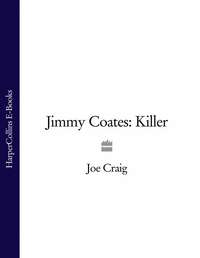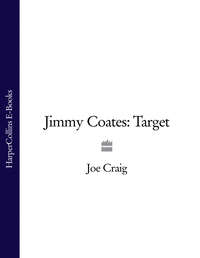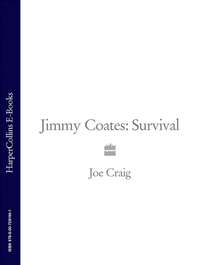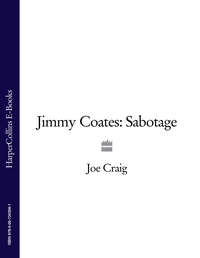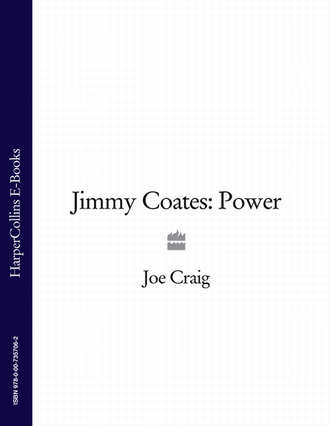
Полная версия
Jimmy Coates: Power
“A day is too long,” Coates rasped. “The operation is already under way.”
“I thought you’d say that.” Miss Bennett shrugged. “So my objections are over-ruled?” The Prime Minister nodded. With a flourish, Miss Bennett unclipped her hair and let it tumble about her shoulders. She tapped her hairclip on the table and with a broad smile announced, “You’re a fool.”
There was general shock around the table, but Ian Coates looked close to smiling too.
“We’re blowing up a tower block,” he insisted quietly. Then he pounded his fist on the table and roared, “We’re blowing up the tower block on Walnut Tree Walk! If anybody has any problem with that they can leave the room now!”
Mitchell looked up and down the table. Nobody made eye contact. The only noise was the soft shuffle of people shifting in their seats. Mitchell knew that if anybody left the room now they would never make it to the street. Miss Bennett was simply watching calmly. The Prime Minister broke the silence.
“We all agree that Neo-democratic principles are vital to the strength of this country, don’t we?” There was a reserved murmur of agreement from his Cabinet. “And that it is our duty to protect Neo-democracy whenever it is threatened.” Again, people nodded and muttered, slightly louder this time.
“Then the British public has nothing to fear from the people in this room. We’re protecting them.” Coates’ voice rose steadily and started to quiver. “The danger comes from beyond Britain’s boundaries. If people don’t know that then it’s our duty to show them.” He pushed himself to his feet and supported himself on the table. “Their fear will protect the system, and it’s the system which is protecting them. If they question the system then they’re not afraid enough!” Mitchell watched, astounded, as the Prime Minister swayed more violently, then staggered backwards, knocking his chair to the floor. “Don’t they realise there’s a foreign country only thirty-six kilometres away across the English Channel, and that it’s full of French people?!” The PM was staggering about now, blinking frantically and unable to balance himself. Every member of the Cabinet, except Miss Bennett and William Lee, rushed to try and support him. Like a feverish bear, he swiped them away.
“There are horrors on our doorstep!” he wailed, his words slurring into each other. “If people are sleeping so soundly at night that they can spread the cankerous filth of an ignorant, traitorous boy…” He rocked to one side and threw his arm out towards the mantelpiece to catch himself, but missed and sent a huge vase crashing to the floor.
Suddenly, people were rushing everywhere to the sounds of screams and desperate shouts for help. Mitchell was transfixed. He felt like he was watching everything in slow motion: the Prime Minister’s eyes rolled back in his head. His arms shuddered and his upper body twisted like a snowflake in the wind. Finally, his legs seemed to melt away from under him. He swivelled and collapsed forwards on to the table, smashing his forehead into the wood. His outstretched fingertips were centimetres from Miss Bennett’s hairclip.
04 CRATE EXPECTATIONS
Jimmy hurried away from Waterloo Station. It hadn’t been hard for him to stay unnoticed by the commuters bustling their way to work. They kept their grim faces downcast unless they were squinting up at the departures board. Jimmy was more worried about keeping his face off the surveillance cameras. With facial recognition software, he’d be picked out of the crowd in seconds.
Fortunately, that also worked in his favour. It meant that nobody would be monitoring the camera feeds personally, and there was no software that knew to look out for a boy wandering through the streets alone.
On the train journey he’d managed to find out a little more vital information from a leaflet he’d found behind the snack bar. It was the train operator’s guidelines on emergency procedures, and it confirmed what he’d thought: the only major hospitals left in the country were in the big cities. It set out clearly that in the case of a significant incident at Waterloo, the nearest hospital with the facilities to cope was a place called St Thomas’.
Jimmy didn’t want to risk going anywhere else. If the other hospitals weren’t big enough or well enough funded to cope with more than a few casualties, there was no way they’d be any help with Jimmy’s radiation poisoning. He’d be putting himself in danger for nothing. No—he had one shot at going to a hospital so it had to work. It had to be St Thomas’.
Jimmy had only been to hospital once before, and he’d been too young to remember now which hospital it had been. He’d fallen in an adventure playground and his mum thought he’d broken his arm, so she’d taken him for an x-ray.
All Jimmy remembered was sitting in the waiting room for hours and hours, only to be told that he was fine. It was almost funny now to think of the way his body had developed. Since his powers had kicked in, it took a lot more than falling down to break his arm. All those cuts and bruises he’d suffered while he was growing up—those days were over. Jimmy knew that it was extreme danger that had awakened his programming early, but he wondered whether there was anything that could possibly make it go away again. He quickly told himself to put thoughts of the impossible out of his mind. His programming couldn’t be switched off. It was part of him.
Jimmy prowled through the streets towards the River Thames. He reckoned the streets were safer that the tunnels of the Underground system, and he’d memorised the map from the train leaflet to guide him to St Thomas’. But within minutes he saw that he had a problem. Armed policemen were blockading the roads and pavements.
Jimmy slipped into the doorway of a café to hide, feeling a surge of anger at himself. How could he have hoped to walk to the hospital? They’ve already set up a ring round the station, Jimmy realised. He’d been counting on it taking a little longer for NJ7 to work out he’d been on the train, not in the wreckage of the helicopter.
There was nothing for it but to turn round and walk back in the direction he’d come. Retracing his steps increased his chances of being recognised, so he chose a different route, while still making his way back towards Waterloo Station. All the time, he was racking his brains. If he couldn’t get to the hospital on foot, it was obvious NJ7 would have the Underground platforms monitored as well—that’s if the trains were running at all.
By now Jimmy was feeling like every thought had to fight its way through a veil of tiredness and hunger. He didn’t dare try to remember the last time he’d slept for more than a couple of hours at a time, and his stomach was aching for some kind of breakfast.
Very soon he was back in the network of road tunnels around Waterloo Station. If they’ve set up a ring, he thought to himself, I’m safest in the centre. He could feel frustration biting at the back of his mind. He didn’t have any time to waste, yet it looked like the only thing he could do was wait. His programming was throbbing through his brain, like dark liquid coating the inside of his skull. It was lining up his options: surely NJ7 wouldn’t be checking the boot of every car, would they? What about the undercarriages?
Jimmy rounded a corner and realised that his body had subconsciously guided him to one of the station’s service entrances. He moved without hesitation, keeping his head ducked low behind the mounds of discarded plastic crates. This was where the stock was delivered to the retail and refreshment outlets. It was a little late for a delivery, but if any supply lorry had been held up it could provide Jimmy with two things: a much needed breakfast and a potential escape opportunity.
Within seconds, Jimmy’s prayers were answered. A white van swung into one of the bays. It backed up to a set of loading doors and stopped. Jimmy waited for the driver to get out. He’d have to choose his moment carefully. What was in the van, he wondered. Sandwiches? Crisps? Muffins? There was nothing on the van that gave any clue—no writing, no logo… But Jimmy’s chance to find out didn’t come.
The van simply waited for about a minute, then pulled off again. Jimmy let out a soft grunt of annoyance. His stomach turned over. Why on earth would a van pull up, wait, then pull off again? It didn’t matter. Jimmy had a choice: find a way into the station through the doors and swipe some food, or wait here for another van to show up. He wasn’t in a waiting mood.
Checking the positions of all the security cameras, Jimmy crept out from his hiding place. He had to move slowly, letting his inner voice guide him through the lines of sight of all the cameras as they swivelled. He was only a few steps from the doors when he heard the squeak of old brakes. In an instant he dived behind another pile of crates, just in time to watch the same white van return to the bay it had left barely minutes before. Jimmy hunched low, peering between the plastic slats. Now he was intrigued.
Again, the van did nothing but sit there for about sixty seconds before roaring off. This time Jimmy didn’t move. Instead he counted. He couldn’t help it. A part of him longed to get into the back of the station and keep moving. But his programming froze his limbs and wouldn’t let them budge. After three minutes his patience was rewarded. The van returned.
Jimmy tried to get a look at the driver, but he couldn’t see past the reflection on the window before the van drove off again, only to be back three minutes later. It must be circling the station, Jimmy realised. But why? Was it some kind of signal? Was the driver waiting for instructions? Was he looking for someone? Jimmy couldn’t help wondering whether this van was part of the operation that was searching for him. But that didn’t feel right. Why would NJ7 have a single white van circling the station and returning to the same bay every few minutes?
The mystery only deepened when the van next returned. This time the driver gave two short blasts on the horn. Two well-built men in grimy blue overalls emerged from the station and immediately flung open the back of the van. Then they started loading it with crates, which were all either sealed or covered in grey blankets. As the first one emerged from the darkness of the station, Jimmy’s skin prickled, but he didn’t know why. He peered more closely at the crates.
They were obviously very heavy and the men were taking great care handling them. They wore huge gloves and set each crate down in the van like they were putting a baby to bed. Jimmy wanted to creep closer to work out what was going on. Something inside him seemed to be drawing him forwards. He took a deep breath to calm himself, but it only intensified the feeling. Then he realised why: it was something in the air.
Nitroglycerin.
The word seemed to lurk in his brain without him realising how it got there. It was as if he’d breathed it in. At first he wasn’t even sure what it meant, but then a low hum vibrated through his body, bringing with it a frightening certainty: highly volatile explosive.
Felix Muzbeke opened his mouth as wide as it would go —which was wider than most—and in a single bite consumed more than half a bagel.
“You’re disgusting,” said Georgie Coates softly.
Felix grinned, which allowed a strand of pastrami to escape his lips and hang from the corner of his mouth.
“How come you’re not fat?” Georgie asked, chomping down on her own bagel. Felix shrugged and kept chewing. A businessman shoved past them to reach the front of the queue so Felix and Georgie hurried out of the way and back on to the main concourse of London Bridge Station.
“What is it about Chris and stations?” Felix asked, once his mouth was at last free of bagel. “We’re going to spend the rest of our lives hiding in underground passages.”
“They’re good places to hide, I guess,” replied Georgie. “We don’t exactly want Miss Bennett to be able to drop in any time she likes. Chris is the Government’s biggest enemy.”
“Apart from Jimmy,” added Felix, with a hint of pride.
“Maybe.”
Georgie’s eyes were constantly scanning the faces of everybody else in the station. Any of the security staff could be looking for them, acting on instructions from NJ7. Any of the commuters could be plain-clothes security staff.
Meanwhile, Felix watched Georgie carefully. She was paying more attention to the surroundings than she was to her bagel. Every now and again Felix wondered whether she might have hidden inside her some of the same powers that Jimmy had. Perhaps she just hadn’t discovered them yet. Felix didn’t dare to ask, but he was amazed at how well Georgie adapted to this life of hiding, of constantly monitoring everybody around her, of surviving on station food when every journey in public was a potential death trap. He felt almost as reassured being with her as he would have with Jimmy. Plus, there was the chance that she wouldn’t finish her bagel and he’d get the leftovers.
“Come on,” said Georgie firmly, “we’d better get back. We’ve been in the open too long already.” They hurried across the station forecourt.
“It’s not my fault,” replied Felix. “They took ages to make my bagel.”
“Next time just have something normal. You know, from the shelf.”
“What’s wrong with pastrami and pineapple?” Felix polished off the last bite with a grin and took Georgie’s bottle of smoothie from her hand.
“Hey!” she protested.
“Just a sip.”
“OK, but drink with your head down.” Georgie flicked her eyes towards the security cameras. Felix struggled to drink from the bottle while keeping his face turned towards the floor.
“Do you think Jimmy can drink without moving his head?” he asked.
“Most people can drink without moving their…” Georgie turned to see that Felix had ended up with a dribble of smoothie down his chin. “OK,” she corrected herself. “Most sane people.”
Felix wiped his mouth and couldn’t help chuckling. He’d never imagined that he’d end up being such close friends with Georgie. Not only was she a girl, but she was two years older than him. Despite that, it didn’t feel weird. There was nobody else for him to spend time with. No school, no socialising…No family, he thought. He felt a chill run through his bones. The idea crept up on him without warning.
Felix’s parents had been seized in New York by men who looked like NJ7 agents. They hadn’t been seen since. But they were constantly on Felix’s mind, on the edge of every thought. He used to think he’d seen them every time he was in a crowd of people, but such illusions quickly faded. He couldn’t let the hope that he would see them again do the same.
“Hey,” he said brightly, trying to distract himself, “what do you think Jimmy feels like when he’s doing all that stuff?”
“What stuff?” Georgie asked. “You mean his…” She dropped her voice and whispered, “Powers?”
“Do you think it’s like an electric shock?” Felix wondered aloud. “Or like a hot shower?”
“Oh, I would so love a hot shower,” Georgie groaned.
“He could have so much fun,” Felix went on. “I mean, you know, if people weren’t trying to kill him and everything.”
“If you ask me, his powers are useless,” said Georgie quickly. “He could be the strongest boy on Earth, but he still wouldn’t be able to change the Government.”
“He probably is the strongest boy on Earth,” Felix pointed out. “Except for Mitchell maybe. But he’s not just strong. What about everything else? Can you imagine it? He could call a bank and make his voice sound like the bank manager and tell them to pay him millions of pounds. He’s probably living in luxury somewhere. He could—”
“I don’t think banks work like that,” Georgie pointed out. “And since when could Jimmy imitate voices?”
“He can,” Felix insisted. “He told me. I bet he can fly too.”
“How are you such an idiot?” Georgie sighed, unable to hide the smile on her face.
“Natural talent,” Felix beamed. “You finishing that bagel?”
Jimmy’s programming was in control, processing the world around him by breaking it down into millions of tiny pieces of information— including the scent of every chemical in the air. He picked them apart like flavours: diesel fuel, stale bread, rotting vegetables, sweat, cats…and hundreds of other things.
He had never been able to do this before. His programming was growing, developing all the time. The realisation made him shiver. He longed to shut off his senses, almost wishing his own skull could collapse in on itself to squeeze the thoughts out of his head.
The slamming of the van doors jerked Jimmy back to reality. By the time he had come to his senses, the van was pulling away. Jimmy wanted to feel relieved. Whatever was in those crates, it was gone now and nothing to do with him.
Yet all Jimmy could hear were the doubts circling in his head. They spiralled together and grew into a thumping determination that overpowered every other emotion. Once he’d caught the scent of nitroglycerin, the assassin in him couldn’t let it go. The odour brought with it snippets of information locked in his brain. He never realised he knew anything about explosives, but now he could feel it. And the feeling was telling him that nitroglycerin was bad news.
It wasn’t used in construction or ordinary demolition. Too unstable, Jimmy heard in his head. Hard to control. There had to be a very special reason why that van’s load included nitroglycerin, and Jimmy had a strong suspicion it wasn’t to throw a fireworks party. He had to follow that van.
Making sure the other men had gone back into the station, he reached down to the bottom of the pile of crates in front of him. Supporting them was the platform used to move them around—a small wooden square on metal wheels. With a sharp jerk, Jimmy snatched it out from under the crates, which came clattering down to the tarmac. Before the noise had even started, Jimmy was already hurtling away.
When he reached the road he jumped up and threw the platform under his feet to use it like a skateboard. He landed with a bang and the small metal wheels growled on the pavement. Jimmy could see the back of the van rounding the corner. He pushed off hard against the ground to speed up, but he knew he would never catch up at this rate. With a delicate twist of his knee, he turned into the road, ducked low and caught the back of a passing car.
The exhaust fumes made his head swim and the car behind honked furiously. Jimmy didn’t care. He steadily moved hand over hand towards the front of the car, even while it was shifting through the traffic. Jimmy kept his eyes firmly on the back of the van, four or five vehicles ahead. He rode every bump in the street’s surface like a snowboarder across ice, keeping his head below the level of the car windows.
The traffic picked up speed now, but even at fifty or sixty kilometres per hour, Jimmy managed to push himself off the front of the first car and catch the back of the next. Again, he clawed his way forwards, until he was close enough to see the face of the front seat passenger in the wing mirror. After only a couple of minutes, the van turned into a side road. Jimmy gently guided himself in the same direction, letting go of the car and taking back control of his own navigation. He ignored that meek inner voice telling him he had no idea what he was expecting to do or find.
It was a fairly quiet street, with large housing estates on either side of the road. Jimmy hung back. There was no other traffic to hide behind now. About a hundred and fifty metres down the road the van turned off into a driveway. Jimmy lost sight of it and had to hurry forwards. He was just in time see the van disappearing down a ramp into the underground car park beneath a residential tower block.
Then the shadows were lit up by a flash. A loud crack followed almost immediately. Jimmy shuddered. Was that a gunshot? He jumped off his makeshift skateboard and ran down the street. The noise of the world seemed to drop away—the traffic on surrounding streets, the shouts of children in the playground between the estates, a TV game show blaring out from an open window in the tower block itself. All Jimmy could hear was the echo of that single gunshot mixing with his feet pounding the pavement.
Just as Jimmy reached the ramp leading down to the car park he was nearly knocked off his feet. From under the tower block came a moped, roaring into street. The driver’s face was covered by a black helmet, but Jimmy recognised the blue overalls. It was the van driver, speeding off up the street.
Jimmy froze. He looked back down the ramp. A solid metal shutter was dropping into place to seal the car park. He turned to look up the street. The moped had disappeared. Jimmy felt a surge of warmth in his legs. They unlocked and thrust Jimmy forwards—but not after the moped. Instead, he dashed down the short slope and dropped into a roll to slip underneath the metal shutter just before it reached the ground.
His programming was telling him one thing: that underneath this building there were crates of nitroglycerin hidden in the back of a van. And somebody had just been shot. Jimmy didn’t know why, and he didn’t know how he’d stumbled on all of this, but there was no way he could leave it alone.
Of course, Jimmy also had no way of knowing that NJ7 had hoped he would find the van. The driver had followed his instructions to circle Waterloo Station and attract attention with obviously suspicious movements. NJ7 had struck lucky. They might not have been able to find Jimmy, but they’d done the next best thing. They’d drawn him in and trapped him in Walnut Tree Walk.
05 TURNING UP THE HEAT
The metal shutter slammed down on to the concrete, cutting off the last sliver of daylight and sealing Jimmy in the car park. Strip lights cast soft shadows around the rows of cars, lined up between huge supporting pillars. Jimmy stood up and dusted himself off, but the first thing he saw made him feel like his knees would give way.
Next to the entrance was the security attendant’s booth. A cup of tea was perched on the ledge inside, still steaming. But the only thing left of the attendant was an explosion of blood and brains on the back wall.
Jimmy staggered back from the booth, clutching at his mouth and nose, as if he could block out the stench of fresh blood. After a second his insides swirled with the force of his programming. It gushed up through his body, blasting away the shock, but it was too late to stop Jimmy retching up the measly contents of his stomach.
Suddenly, the curiosity that had brought him here took on a fierce urgency. While a part of him wanted to curl up in the corner and catch his breath, he knew that wasn’t an option. Instead, Jimmy found the guard’s phone and walkie-talkie. Both had been smashed—presumably by the same man who had blasted the attendant’s head off.
He drove past me on that moped, Jimmy realised, the sickness rising up inside him again. I could have stopped him. He felt dizzy, but his programming seemed to crank up a gear. It was like a belt fastening a notch tighter inside his skin, pulling his thoughts into calm, emotionless order.
First he found the van. That wasn’t hard—it was parked in the central row, right next to one of the pillars. The rear doors were locked, but Jimmy jabbed his elbow into the catch. There was nothing he could do to help the attendant now, but if he was right about the van containing explosives he had to warn somebody.
He pulled the van doors open and saw that the vehicle was completely full of crates, stacked up three high and covered in a thick grey blanket. When he pulled back the corner of the blanket, he nearly threw up again at what he saw. There were dozens of crates and every single one was packed with slim glass tubes of a clear, jelly-like substance, all connected by a network of black wires. The whole van was one giant bomb.
Jimmy wanted to warn people. He thought of all the residents in the tower above him, of the children in the playground alongside the building. They all had to evacuate. But Jimmy’s feet wouldn’t run. Instead he remained rooted to the spot while his eyes darted around the contraption in front of him. He traced the lines of wire like he was following the map of a labyrinth, examining the piles, counting precious seconds. How long did he have before it blew up?


